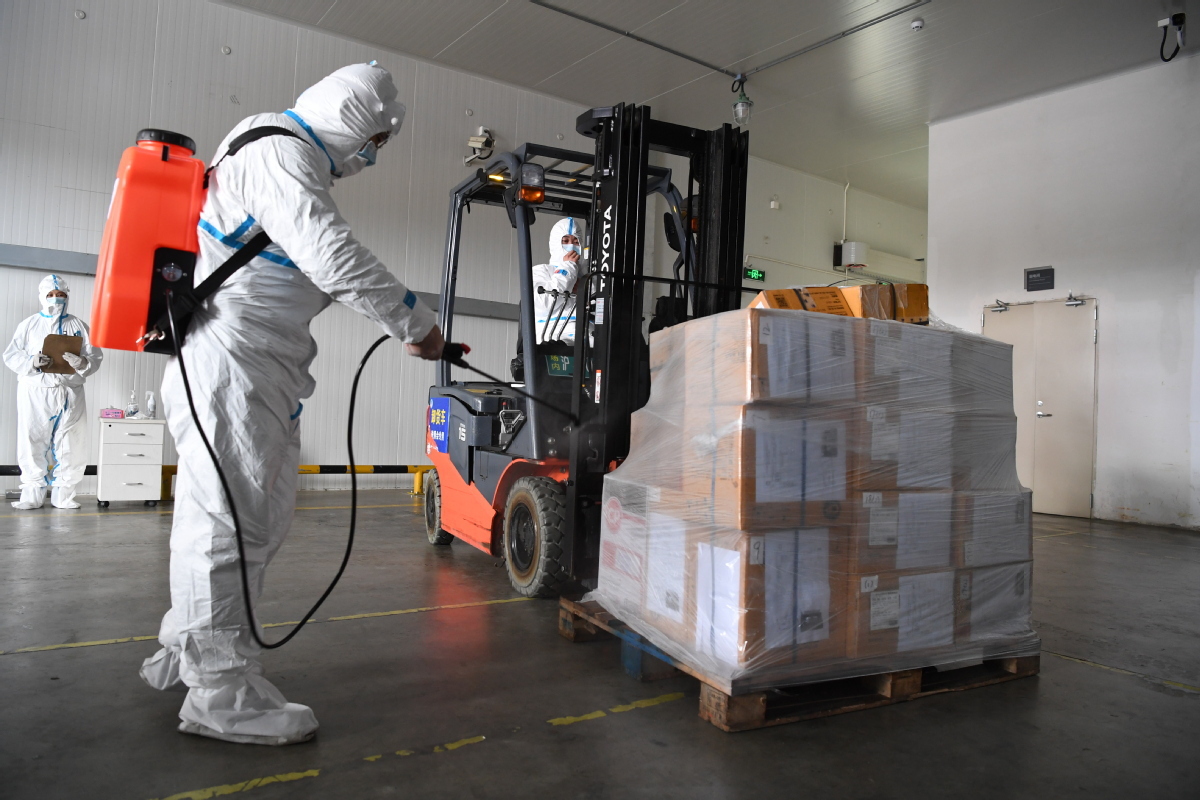Cold-chain import tracing set to help stop COVID-19 from overseas


China's top market regulator said on Wednesday evening that a national platform designed to trace cold-chain imports has been established and gone into operation, as part of efforts to fend off risks of COVID-19 infections from overseas.
Nine provinces or cities that serve as the first point of entry for over 90 percent of all imported cold-chain food products arriving in China are now linked to the new platform, according to an article posted on the website of the State Administration for Market Regulation.
With the rollout of the platform, "We have basically expanded our online tracing capability to cover the entire industry chain from customs clearance, production and processing, to wholesaling, retailing and catering," the administration said.
The platform also has played a significant role in screening cold imports online, implementing targeted supervision and facilitating on-site management. "The outcomes of efforts devoted to stemming virus risks arising from objects have begun to materialize," it said.
The administration has used advanced technologies to overcome barriers in identifying and consolidating different sets of information nationwide, it said.
During a video conference held by the administration on Tuesday, local market regulators were required to institutionalize and upgrade online tracing platforms for cold-imports and accelerate efforts to merge with the national system.
Businesses should be urged to upload key data on cargoes' origin, destination, quantity and location in a timely manner. When an abnormal situation arises, local officials should be able to swiftly screen all imports and identify suspicious batches, the administration said.
Key port cities should fully implement disinfection, testing and information collection procedures, as well as strengthen cooperation between different departments and across regions, it said.
In addition, local market regulators are required to screen all enterprises involved in handling cold imports, including importers, agricultural markets and online e-commerce platforms.
Cold imports without inspection certificates, nucleic acid test results, disinfection certificates and information on its origin and flow are banned from entering markets, the administration added.
Sellers of products that test positive for the novel coronavirus will be guided to pull off and seal problematic batches immediately, it added.
Evidence of the virus's ability to travel and survive on cold imports has accumulated in recent months, prompting Chinese authorities to intensify inspection of cold-chain products from overseas.
Li Ning, deputy director for the China National Center for Food Safety Risk Assessment, said during a previous news conference that about 0.0048 percent of products sampled for nucleic acid testing are returning positive, mostly involving outer packaging of cold imports.
- Interest in Turkiye soars among Chinese tourists after introduction of visa-free entry
- Yunnan e-bike fire probe identifies raft of failings
- Investigation report released on e-bike fire that killed 8 in Southwest China
- Understanding Xi's vision of China and the world through New Year message
- 'Artificial sun' experiment finds way to break plasma density limit
- China reports 20% rise in inter-regional trips on first day of holiday



































